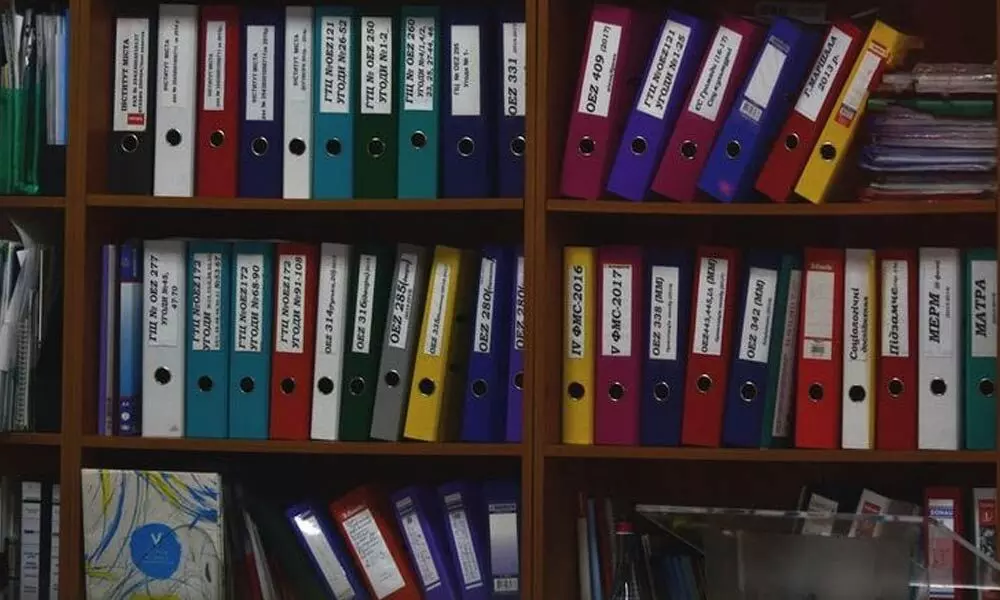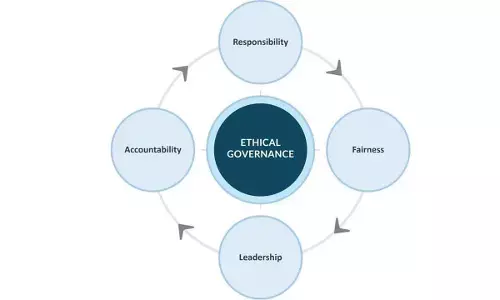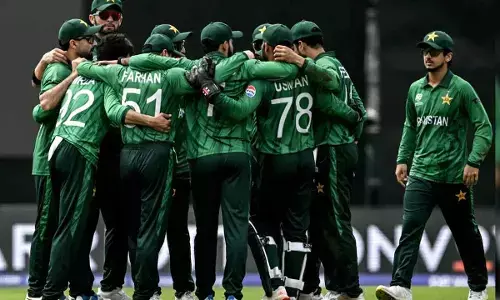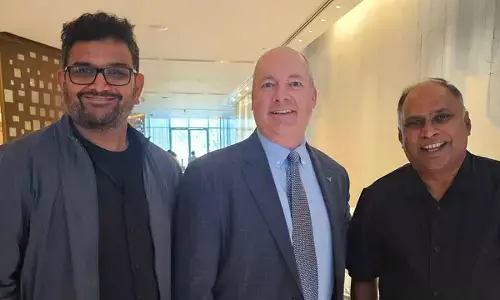Failing bureaucracy calls for PM's attention

This article is not aimed at criticising any individual or any single political party or any government
This article is not aimed at criticising any individual or any single political party or any government. It is only an attempt to analyse how a transformation has taken place in the outlook of the political executive and administrative wings of the government.
It is an effort to tell the society as to why we are seeing so much of unrest in the society. Why people have become helpless and voiceless. It is an attempt to explain why the time of the judiciary is getting more and more consumed in correcting the decisions taken by the political executive. Why so many PILs are being filed against the governments whether it be in Telangana or Andhra Pradesh or any other State for that matter. This is leading to greater suffering of the common man as he has to wait for justice for years together.
Litigations pertaining to government decisions were not seen in such high proportions in the past. Why? The country has a qualified, well-trained bureaucracy which constitutes the permanent and professional part of the executive organ of the government. Still why is it that they are not able to ensure that the litigations are minimal? On the other hand, of late we have seen that the courts have been summoning top officials whether it is the Chief Secretary or the DGPs.
Where does the fault lie? The Andhra Pradesh Chief Minister YS Jagan Mohan Reddy expressed his concern over the increasing number of litigations which was even hindering implementation of certain welfare schemes. Why are States witnessing such situations? Is there a void between the bureaucracy and the political executive or do the governments feel that the bureaucracy should act only as implementing agencies and not as the eyes and ears of the government and as think tanks?
Let's start with understanding the role of bureaucracy. The civil servants, as they are called, are professionally trained, supposed to be neutral and permanent officers. They are supposed to be the people who implement the policies decided by the political executive. They are the people who run the administration under the leadership of the ruling political party.
The members of the bureaucracy are not supposed to be directly involved in politics. They, being permanent employees, are expected to carry out the assignments given to them in a politically neutral manner whichever party may come to power.
Policies can be amended by any government but should not be dumped totally. But the reverse is happening more so in States. Why is it so? It is the bureaucracy which plays a major, nay, main role in drafting the Bills, Acts and law but then why are they being dubbed as useless once the government changes? Why are they being questioned by the judiciary?
The officials assist the government of the day with necessary data and analysis, the rule position, the legal validity and the impact of such proposals on the society. Sometimes they even suggest alternative policies explaining the merits and de-merits of the proposed policies or Acts. But then why so many litigations? Are they failing in calling a spade a spade?
They are also supposed to maintain good public relations by establishing contacts with the general public and act as a bridge between the government and the people. They are trained to understand the requirements of the society and communicate the same to the government.
In the past, departments like Directorate of Audio Visual and Publicity at the Centre and the Information and Public Relations Department in the States had a major role to play in popularising various schemes introduced by the government. They used to have special vans equipped with audio visual equipment and teams of cultural troupes which visited villages and explained to the people about the schemes and its benefits and got feedback from the beneficiaries. Now all that has become part of history. The disconnect between the people and the administration started from here.
The district administration headed by District Collectors are busier in holding video conferences and attending several meetings and do not have enough time to go into the field and have no time for the common man. In the past, if there was any such problem with the bureaucracy, the political leaders from gram sarpanch to the Minister were available for the redressing the grievances of the people. But slowly, even a disconnect between the political leaders and their voters has begun.
Though the political parties, national or regional call themselves as democratic by nature, all of them have become highly centralised. No member of their party can speak freely. They cannot express their opinion directly either on the party platform or any other forum. They are not supposed to deviate from the dotted line given by the party's top leadership.
The language of politicians has also crossed all barriers. Even people at the level of Chief Ministers and presidents of political parties are using cuss words both on the floor of the House and outside claiming that it is the local slang. This seems to be becoming a trend in all parties. In fact, some leaders are even taking objection that the print media does not publish the words as they use during the media conferences against their political opponents.
This disease has even spread to the so-called disciplined saffron party. We are seeing this in the two Telugu States as well and this has resulted in Telugu which is known as the Italian of the East losing its beauty and flavour.
Another trend has begun. Appointing retired bureaucrats and intellectuals as advisors to the State government. It would have been advantageous for the government's if the services and experience and expertise of these officers was used in drafting better policies and programmes. But unfortunately, they are turning out either to be ornamental pieces or voice of the political executive instead of being the think tank behind the policies of the government. There have been many occasions when they themselves had taken up the responsibility of becoming the spokespersons of the government.
No wonder recently Mahima Datla, at a conference anchored by the TS Minister for IT, KT Rama Rao, commented that the 'Bureaucratic Cholesterol' was hampering the speedy progress of the industry. Similarly, the high courts in TS and AP had also made certain adverse remarks against the top officials. Certainly, all this calls for a review of the role and relationship between the administration and the political executive. Let's hope the honourable Prime Minister would focus his attention on this and take the first step in establishing Ram Rajya in the country.









